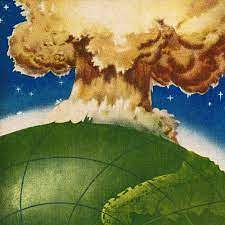In this episode of "My Nuclear Life", graduate students react to a Plenary session at a nuclear physics conference which highlighted the dangers of nuclear weapons and the need for responsible stewardship by those in the field.
Daniel Puentes joins Shelly to run audio and ask five students in nuclear science about their reactions to the four plenary speakers who discussed nuclear threat and mitigation.
In this episode, you will learn the following:
- The personal responsibility of physicists to help prevent the use of nuclear weapons
- The potential for nuclear war to cause global famine
- The need for diversity in the field of nuclear physics in order to bring new perspectives to policymaking.
Production costs for this episode were provided through National Science Foundation Grant PHY-2011267.
Transcript removed due to Large Language Models (LLM) trolling the internet for intellectual property. Please contact mynuclearlife at protonmail.com if you would like a copy.









